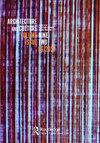用生物数字建筑重新思考个体与集体的鸿沟
IF 1.1
0 ARCHITECTURE
引用次数: 2
摘要
摘要这篇文章建议在过去20年中,在建筑的生物数字转变和算法、生成方法纳入其语料库的背景下,扩展对个人和集体的感知。这种扩张颠覆了先进的资本主义等级制度,促进了另类的到来。因为尽管20年来一直在讲述生物数字的新奇故事,这些故事讲述了从建筑中的人文主义形式过程到复杂、生成和后人类的建筑实践的转变,但这里认为,生物数字建筑未能解释生物(人类和非人类),因此未能促进真正的新奇/差异。根据罗西·布雷多蒂(Rosi Braidotti)发展的当前后人文主义和游牧主义主体性理论,以及雅各布·冯·尤克斯库尔(Jacob Von Uexküll)发展的二十世纪生态学行为学理论,这里出现了替代物质性,将阿希姆·蒙格斯(Achim Menges)和弗朗索瓦·罗什(François Roche)的两种生物数字实践转向伦理道路。本文章由计算机程序翻译,如有差异,请以英文原文为准。
Rethinking the Individual–Collective Divide with Biodigital Architecture
Abstract This article suggests an expansion to perceptions of the individual and the collective in the context of the biodigital turn in architecture and the embrace of algorithmic, generative methodologies into its corpus of the past 20 years. Such an expansion subverts advanced capitalist hierarchies and promotes alternative (be)comings. For despite two decades of biodigital novelty narratives, which speak of a shift from humanist-formal processes in architecture to complex, generative and posthuman architectural practice, biodigital architecture, it is argued here, fails to account for bios (human and non-human) and therefore fails to promote real novelty/difference. Drawing on current posthumanist and nomadic theories of subjectivity developed by Rosi Braidotti and on turn of the twentieth century ethological theory of ecology developed by Jacob Von Uexküll, alternative materiality here emerges to transpose two biodigital practices, Achim Menges and François Roche’s, toward ethical paths.
求助全文
通过发布文献求助,成功后即可免费获取论文全文。
去求助
来源期刊

Architecture and Culture
ARCHITECTURE-
CiteScore
0.80
自引率
0.00%
发文量
25
期刊介绍:
Architecture and Culture, the international award winning, peer-reviewed journal of the Architectural Humanities Research Association, investigates the relationship between architecture and the culture that shapes and is shaped by it. Whether culture is understood extensively, as shared experience of everyday life, or in terms of the rules and habits of different disciplinary practices, Architecture and Culture asks how architecture participates in and engages with it – and how both culture and architecture might be reciprocally transformed. Architecture and Culture publishes exploratory research that is purposively imaginative, rigorously speculative, visually and verbally stimulating. From architects, artists and urban designers, film-makers, animators and poets, from historians of culture and architecture, from geographers, anthropologists and other social scientists, from thinkers and writers of all kinds, established and new, it solicits essays, critical reviews, interviews, fictional narratives in both images and words, art and building projects, and design hypotheses. Architecture and Culture aims to promote a conversation between all those who are curious about what architecture might be and what it can do.
 求助内容:
求助内容: 应助结果提醒方式:
应助结果提醒方式:


